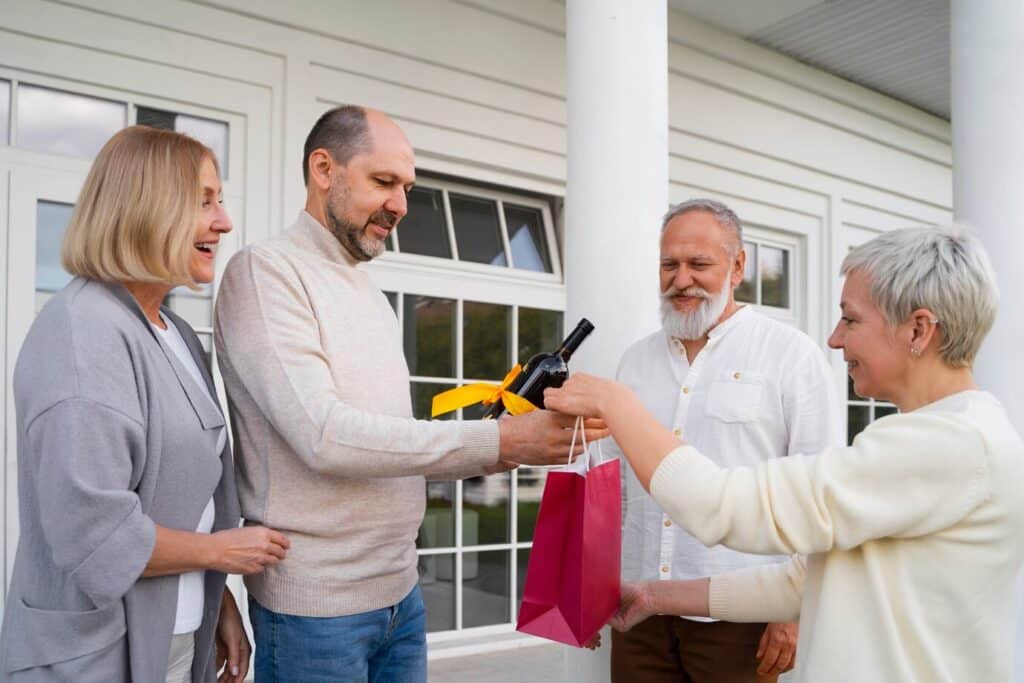10 Benefits Of Dementia Respite Care You Need To Know
Care for individuals with dementia requires a comprehensive approach that extends beyond the traditional caregiving scope. Dementia respite care offers invaluable support and relief for individuals with dementia and their caregivers. In this top 10 list by Westmont Town Court, we research into the key advantages that dementia respite care can provide, shedding light on the vital aspects that make it an indispensable resource for families navigating the challenges of dementia care. From enhancing quality of life to fostering social connections, these benefits underscore the significance of incorporating dementia respite care into a comprehensive care plan.
Key Takeaways:
- Dementia Respite Care provides a safe and supportive environment for individuals with dementia, allowing their caregivers to take a break and recharge.
- Professional Caregivers at respite care facilities are trained to handle the unique needs and behaviors of individuals with dementia, ensuring their well-being and comfort.
- Respite Care can help prevent caregiver burnout, reduce stress, and improve the overall quality of life for individuals with dementia and their primary caregivers.
Improved Personal Well-being
A key benefit of dementia respite care is the significant improvement in the personal well-being of the individual with dementia and their primary caregiver. By providing temporary relief to the caregiver, respite care allows them to rest, recharge, and attend to their physical and emotional needs.
For the individual with dementia, respite care offers a change of scenery and routine, which can help reduce feelings of isolation and boredom. Engaging activities and social interactions at a respite care facility can stimulate cognitive function and positively impact their emotional state.
Studies have shown that regular respite care improves the overall quality of life for both the individual with dementia and the caregiver. It also reduces stress levels, enhances mood, and promotes a sense of independence and empowerment.
Caregiver Stress Reduction
Before venturing into the benefits of dementia respite care, it’s crucial to address the issue of caregiver stress. Caring for a loved one with dementia can be emotionally and physically draining, leading to burnout and impaired well-being for the caregiver.
One key benefit of dementia respite care is reducing caregiver stress. By allowing caregivers to take a break and focus on self-care, respite care can help prevent caregiver burnout and ultimately improve the quality of care provided to the loved one with dementia.

Caregiver Stress Reduction
Social Stimulation Enhancement
One key benefit of dementia respite care is the enhancement of social stimulation for individuals affected by this condition. Social interaction is crucial in maintaining cognitive function and emotional well-being in dementia patients.
By participating in organized social activities within a respite care setting, individuals with dementia can engage in conversations, participate in group activities, and form new friendships. These interactions not only provide mental stimulation but also help combat feelings of isolation and loneliness commonly experienced by individuals with dementia.
Furthermore, the structured and supervised environment of a respite care program ensures that social interactions are tailored to the individual’s cognitive abilities, promoting a sense of accomplishment and self-worth.
Professional Care Assurance
Even with the best intentions, providing round-the-clock care for a loved one with dementia can be physically and emotionally draining. This is where dementia respite care can be invaluable, offering professional care assurance that ensures your loved one receives the highest support and assistance.
Having trained caregivers who specialize in dementia care can provide a sense of reassurance and peace of mind for families of individuals with dementia. These professionals have the knowledge, skills, and experience to handle the unique challenges associated with the condition, allowing families to rest easy knowing their loved ones are in good hands.
Nutrition and Medication Management
It is crucial to ensure that individuals receiving respite care have proper nutrition and medication management. Proper nutrition is key to overall health and well-being for individuals with dementia. Balanced and nutritious meals that support brain function and physical health must be provided.
Medication management is also a critical aspect of dementia care. Many individuals with dementia may have complex medication regimens that require strict adherence. Caregivers must carefully monitor and administer medications to ensure they are taken at the correct times and dosages. Proper medication management is necessary for managing symptoms and slowing the progression of dementia.

Nutrition and Medication Management
Flexible Care Schedules
Assuming the role of caregiver for a loved one with dementia can be both rewarding and challenging. One key benefit of dementia respite care is the ability to provide flexible care schedules tailored to the needs of both the individual with dementia and their caregiver.
A flexible care schedule means that caregivers can arrange respite care services on specific days and times that work best for them. This could be during weekdays, weekends, or even a few hours daily. Caregivers can have peace of mind knowing that their loved one is receiving expert care while they take some time to rest and recharge.
Additionally, flexible care schedules allow individuals with dementia to receive consistent care and support while maintaining a sense of routine. This can help reduce feelings of anxiety and confusion that often accompany changes in caregiving routines.
Renewed Caregiver Energy
All caregivers experience burnout at some point in their journey of caring for a loved one with dementia. The emotional, physical, and mental toll can be overwhelming. However, by utilizing dementia respite care services, caregivers can find renewed energy and rejuvenation.
Respite care allows caregivers to take a step back, recharge, and focus on self-care. This time away allows caregivers to rest and prioritize their own needs, resulting in increased energy levels and a renewed sense of purpose.
By taking breaks and seeking support through respite care, caregivers can prevent feelings of exhaustion and the risk of resentment or neglect toward their loved ones. Renewed energy allows caregivers to continue providing quality care for their loved ones with dementia without compromising their well-being.
Increased Patient Safety
Despite the challenges that come with caring for a loved one with dementia, ensuring their safety is paramount. One of the key benefits of dementia respite care is the increased level of patient safety provided by specialized facilities and trained professionals.
Respite care centers have secure environments to prevent patients from wandering off or getting lost. This is particularly crucial for individuals with dementia who may experience confusion or disorientation. By entrusting your loved one to a respite care facility, you can know they are in a safe and secure environment.
Moreover, respite care staff are trained to handle dementia-related behaviors such as agitation, aggression, or wandering, minimizing the risk of accidents or injuries. Their expertise in managing challenging behaviors ensures that your loved one receives appropriate care and attention while maintaining a safe and supportive environment.
Overall, the increased focus on patient safety in dementia respite care facilities is a significant advantage for families seeking temporary relief from caregiving responsibilities. By choosing Westmont Town Court, you prioritize your loved one’s well-being and ensure they receive the specialized care and attention they need to stay safe and secure.

Patient Safety
Access to Therapy Services
Many individuals with dementia require access to therapy services as part of their comprehensive care plan. Therapies such as occupational therapy, speech therapy, and physical therapy can play a crucial role in improving the quality of life for individuals with dementia.
Occupational therapy helps individuals maintain independence by focusing on daily activities such as bathing, dressing, and eating. Speech therapy can aid in communication difficulties often associated with dementia, while physical therapy helps maintain mobility and strength.
Access to these therapy services can enhance the cognitive and physical well-being of individuals with dementia, allowing them to engage more fully in daily activities and maintain a higher level of functioning.
Conclusion
Ultimately, dementia respite care offers numerous benefits for individuals with dementia and their caregivers. From providing a safe and stimulating environment to offering much-needed emotional support, respite care can help improve quality of life for everyone involved. By taking advantage of respite care services, families can ensure that their loved ones receive the specialized care and attention they need while allowing caregivers to recharge and prevent burnout. It is important to consider all the advantages of respite care when making decisions about dementia care for your loved one. For more information, please contact us at 760-737-5110.
FAQ
Q: What is Respite care?
A: Respite care is a type of care service that provides temporary relief to caregivers of individuals living with dementia. It allows caregivers to take a break while ensuring their loved one receives the necessary care and support.
Q: What are the benefits of respite care?
A: Respite care offers numerous benefits, including giving caregivers a chance to rest and recharge, reducing stress and burnout, providing social interaction for individuals with dementia, maintaining a routine and consistency in care, and offering specialized support from trained professionals.
Q: How can respite care improve the quality of life for caregivers and individuals with dementia?
A: Respite care can improve the quality of life for caregivers by reducing feelings of burden and overwhelm, improving mental and emotional well-being, and allowing them to better focus on their needs. For individuals with dementia, respite care can offer engaging activities, socialization, and personalized care that enhances their overall well-being and quality of life.
























